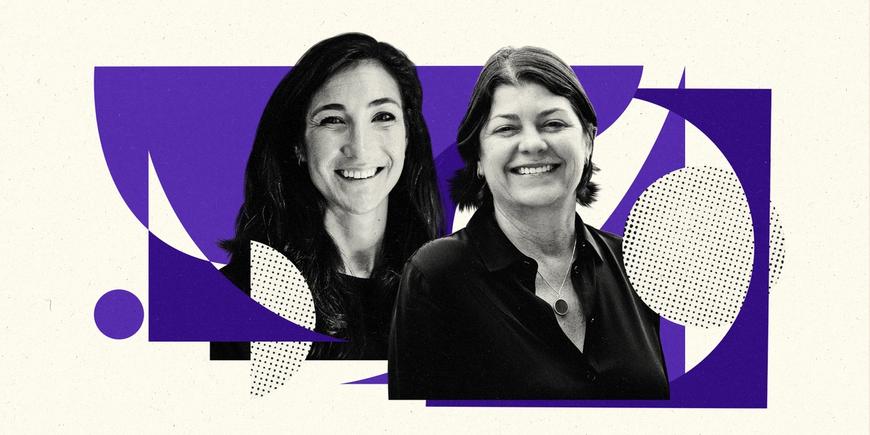The Best CROs Bring Firepower to Fast-Growing Startups
Andrea Johnston, who’s been Chief Revenue Officer at OpenTable and Alludo, on her career journey, the importance of CRO and CEO partnerships, and having the “fuego” to succeed.

Being an early stage founder means transitioning from tactical to strategic operations—and partnering with new and existing executives in this pursuit. Easier said than done. In the Around the Exec Table series, we feature tips, insights, and best practices, role by role. Keep up with new installments by following me on LinkedIn.
Chief Revenue Officers bring so many threads of a growing business together. Great ones put sales and marketing data into rich conversations with partners throughout the C suite, diving into trends and driving pivots when necessary.
It’s also a role that can be confusing to early stage startup founders, because the need for it isn’t unlocked until a few other departments are up and running. Sales leadership, data analytics, marketing, and some form of customer success typically come first, then when the team is ready to rapidly scale, a CRO can be a powerful amalgamator and accelerator of all those functions.
Andrea Johnston has done this at OpenTable and workplace tech company Alludo, and joined me recently for a conversation about her career, what CROs do, and which kinds of profiles she’s seen do best in the role.
Tell me a little bit about your background and career journey.
I have sort of a strange career path. I started in international health, I was a fundraiser, and I was a lobbyist, which inherently is sales. The reason I got into international health was because of access—access to information, access to services, all of that. I saw that technology could help connect people around the world. So I founded my own online network that did just that. This was before Facebook and LinkedIn and that's where I really got the tech bug. It's the great equalizer; it makes things efficient and helps individuals or businesses.
From there, I handed my organization to a mentor of mine and went full-on into startups and was with a venture-backed wine ecommerce business. I was there for five years and built out all of the customer winery-facing teams and did the business development.
After that, I jumped to OpenTable and had a 10-year run there. I started in smaller leadership roles and moved up by running our global sales, account management, onboarding, support, and restaurant marketing. It was fantastic. OpenTable's an incredible company and again, it's helping restaurants use technology and also market them so that consumers book and they can drive revenue. That's what I was passionate about.
Then I moved to Corel, now called Alludo, which is a little bit of a different turn and that was a cool transformation with a different customer set, a lot of products, and a great team. So that is my loose career path, which is a little bit circuitous, but I feel like the common threads are technology, helping people, customer-centricity, and really having the opportunity to build things.
How do you define the role of CRO? What does it include and what is it responsible for?
I think everybody defines it a little bit differently. To me, it is all the go-to-market, but not all of those functions necessarily need to sit underneath. So I think the key is: How are you signing up customers to drive revenue? How are you supporting them to reduce churn? How are you marketing to them? It's demand marketing, it's engagement marketing, and how are you supporting customers? How are you doing partnership business development deals? Again, it is all about solving problems for customers and servicing them in the best possible way.
All of those components hang together and, with various companies, some have all of them rolled into the CRO and some are split up a little bit. You could have a Chief Sales Officer and a Chief Success Officer. I think the key is that you're focused on the revenue for the business, but how are you partnering and driving all of the teams to support that?
What would you say a well-operating revenue function should look like before a CRO comes on board?
I've talked to a couple of folks recently who are asking me when do I bring in a CRO? Do I not? How do I build out organizations? I think at an early stage, you may not need heavy hitter C-Levels. I think the key is to get things moving across the functions so that you're driving the objectives that you want—revenue, churn, numbers, all of that.
I think you need some strong sales leadership and you need a good data and analytics team to measure productivity/impact. I think you need some form of marketing, so your brand is out there and you're driving the revenue. And then, again, a customer-focused mindset. Whether that comes through marketing or that comes through a customer success organization or a support organization, you should have those frontline functions humming. From there, if it makes sense to rapidly scale a business, then you bring in a CRO to really tie it together and optimize.
What metrics matter most as a CRO? Is it all about the money or is there more to it?
Money's important, but there's a lot more to it. You could look at the revenue growth numbers, for sure. You look at the retention numbers and you can peel back those numbers. With revenue, you can drill down and say, "Is it net new ads, new logos? Is it you've landed them and you're expanding?" It's looking at your sales organization and figuring out how productive they are and what is the LTV to CAC.
On the retention side, it's figuring out if your sales folks are also responsible for the retention and the account management piece of things. Do you have separate teams? I think that I'm also looking at it from the marketing side of things. You could go the path of MQLs and SQLs. You could go the path of the NPS score. You could go the route of how many events are we going to? So there are a lot of different metrics there. I think the key is measuring how the organization is doing and really aligning with finance and marketing to make sure that we're driving the business forward.
So let me ask what might be a controversial question. Is there a metric that you think is the best or is there any that you think are rubbish?
That is a good question. I would ask "Hey, how are you driving the revenue?” but then “What is the quality of that revenue?" You could go sign a bunch of crappy accounts and they're going to churn out or they're not going to drive revenue, nor testimonials. So then is that good for the business? Maybe, depending on what you're trying to achieve, but maybe not. But maybe your product's not ready to go get the big accounts. Different companies measure the quality of customers and sales in different ways.
What would be your advice to a CEO Founder on how they can best partner with the CRO for the most leverage?
Make sure that the CRO coming in understands all the details of the business and that the CEO is open to sharing everything so that the CRO truly, truly understands what matters. Where are we going? What do the product and our customer scalability look like? You need to have a very transparent, honest, open relationship where you can debate, challenge, and figure out how to drive the business forward. It's a partnership.
How do you think CROs are most misunderstood?
People think they're just about the revenue and it's so much broader than that. It's service, it's customer-first, it’s trying to drive roadmaps, and thinking through the pricing, the value proposition, etc.I think often the label CRO doesn't encompass everything.
What advice do you have for aspiring CROs?
If somebody's got their heart set on being a CRO, get as much experience as you can in many different segments. It's not just about sales. My advice would be to broaden your mindset, put the business first, not just the sales first, and have those collaborative dialogues across functions.
If you were in the seat of interviewing CROs, what intrinsic competencies do you look for and what do you think makes someone particularly successful in the function?
I always hire people who have the fuego, which is “the fire” in Spanish. You have to have passion, you have to charge the mountain. I look for strong leaders and culture bearers. You need to motivate your teams—the customer-facing teams, the sales teams, and your cross-functional partners.
I also look for folks who are able to interpret data so that they can have a strong conversation with the CFO, the CEO, etc. So you can look at the trends and figure out how to pivot in service to growth.
What is the best advice you've ever received?
The best advice I've ever received is just to believe in yourself, don't let anyone talk you down, and just do it. That actually came from my dad originally, who was an entrepreneur.
I came from a non-traditional background of nonprofits and had a really hard time pivoting to the tech VC-backed world. I got knocked down a few times and it was like, "No, I can do this. Everything applies. And I'm a leader and I'm a manager and I can build things." So he gave me that advice and then the CEO of one of my startups did as well and my take home was, "Ignore those people. Let's do this."
